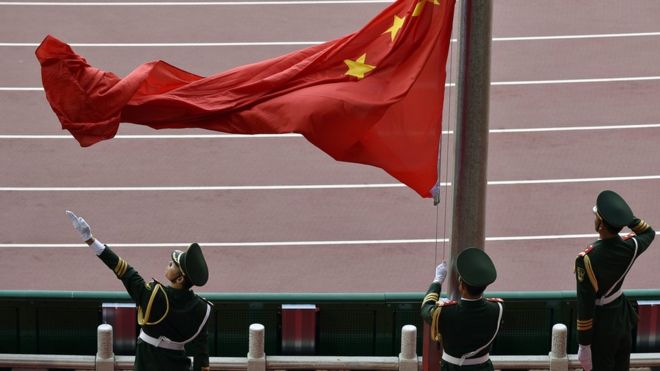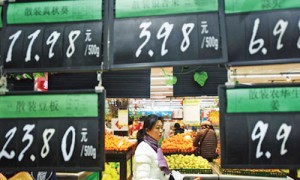导读:中国政府最新发布的一系列经济指标数据表明,这个世界第二大经济体仍然处于低迷状态。

Both industrial output and retail sales fell short of expectations for the month of July.
七月份,工业产出值和零售额数据都低于预期。
The figures underline China’s difficulty of transforming the economy away from factories and exports.
这些数据突出表现了中国经济转型、转变目前以制造业和出口为导向经济的困难。
The data come just as economic growth had ever so slightly improved in the second quarter.
在这些数据出炉前,第二季度,中国经济刚刚实现了有史以来最微小的一次增长。
Earlier this week though, China’s latest trade data had also pointed to a further slowdown.
但是尽管如此,本周早些时候,中国最新贸易数据也指出中国经济将进一步放缓。
A spokesman for the National Statistics Bureau said on Friday that the country’s economy was still in a period of adjustment and facing downward pressure.
中国国家统计局一名发言人在周五的时候表示说,中国经济目前仍处于调整期,面领着下行压力。
The International Monetary Fund (IMF) expects China’s GDP to grow by 6.6% this year, close to the low end of China’s own official forecast of between 6.5% to 7%.
国际货币基金组织(IMF)预期中国GDP今年增长的速度将达到了6.6%,接近中国自己官方预测数据(6.5%-7%)的最低点。
The IMF also warned China against setting annual growth targets rather than projections, which it claimed fostered "an undesirable focus on short-term, low quality stimulus measures".
国际货币基金组织同样警告中国,与其设立经济年增长目标,不如对经济进行预测。国际货币基金组织表示说,设立增长目标会“在短期内设立一个非自愿性焦点,是一个低质量的刺激措施”。
In a report, the Fund said it expected China’s economic growth to slow towards 5.8% by 2021.
在一份报告中,国际货币基金组织表示说,预期到2021年时中国的经济增速将会放缓到5.8%。
Economic transformation
经济转型。
Retail sales were up by 10.2% in July compared with a year earlier - below forecasts and a fall from the 10.6% increase in June.
和去年同期相比,今年七月份中国零售额增长了10.2%--该数值低于预期,且低于今年6月份10.6%的零售额增长率。
Industrial output rose by 6% compared with the same period the previous year and was also weaker than analysts had expected.
和去年同期相比,工业产出值增长了6%--同样低于分析师们的预期。
Infrastructure spending as indicated by fixed asset investment also fell short of forecasts.
基础设施建设支出数据由固定资产投资衡量--同样低于预期。
The National Bureau of Statistics pointed to flooding and high temperatures as the part of the reason.
据中国国家统计局指出,洪灾和高温天气是导致这些数据的部分原因。
Beijing’s aim to rebalance the economy towards domestic consumption has lead to major challenges for large manufacturing sectors with layoffs, especially in heavily staffed state-run sectors such as the steel industry.
中国经济转型的目的是要重新平衡经济对国内消费的影响,但是这一目的现在却已经使得大制造业部门(尤其是人员众多的国有部门,例如钢铁产业)大量裁员,从而面临巨大的挑战。
Even alternative gauges, such as cinema ticket sales, have recently indicated that consumer spending is not picking up as much as China would hope it to.
即使是其他的一些经济衡量标准--例如电影票房--也不太景气,这表明消费支出并不像中国政府所期望的那样强劲上升。







